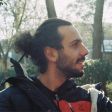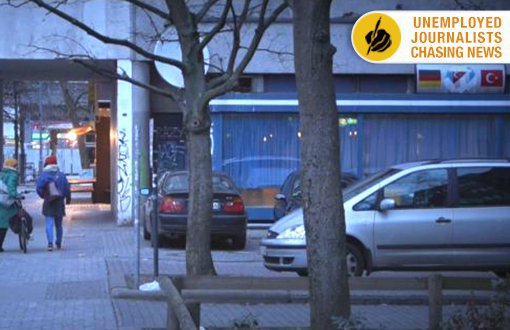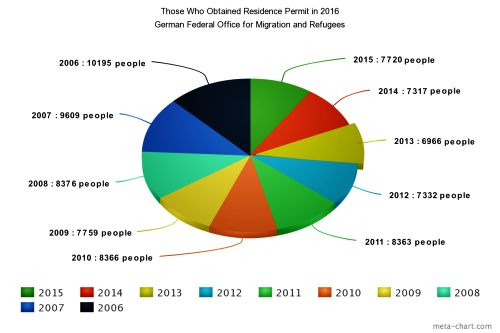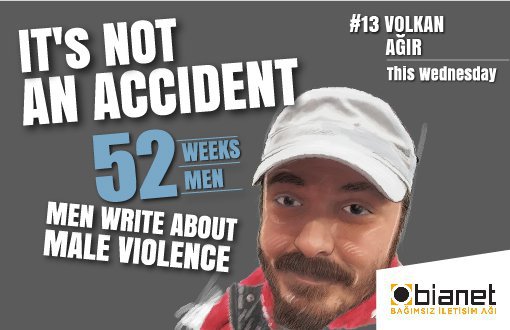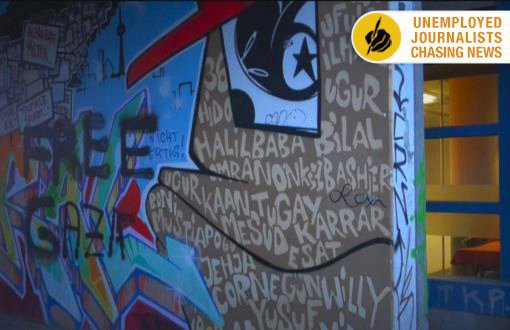Click to read the artice in Turkish / Kurdish
“I’ve left tears behind
I’ve left a spouse crying in tears
I’ve left my left side desolated, hey
How would you know
Who I got crossed with”
Ahmet Kaya
No one leaves willingly. Conditions force people to leave. Is there anyone who leaves of his or her own will? Indeed, there is, however, heaven knows why it is called “moving” rather than immigration or voluntary immigration. Furthermore, this situation is not considered a problem.
In Turkey, an increasing number of people seem to be leaving for other countries, or does it just look like that to us? Recently, many people who have already established their lives have based their plans on “leaving” either for a period of time or for good. As some people already have plans for their future, the only thing that the rest rely on is leaving itself.
But, is it that easy to leave? Do things get back on the rails after one leaves? Is getting rid of a situation that you find harsh and challenging as simple as discontinuing a bad movie and leave it.
Germany is the first country that comes to the mind of the ones who plan to move away from Turkey. Turkey and Germany have a certain history. First the motto “We lost when Germany lost” emerged in the early 1900s. Then the Second World War followed. An influx of workers from Turkey to Germany started “upon Germany’s wishes.” Cooperation during this period as well as the decision of those who went to Germany to reside there have deepened relations. The number of Turkish citizens living in Germany has reached approximately 3 million from that time until now.
The number of citizens of Turkey who went to Germany and obtained a residence permit was 10,388 in 2013, 10,748 in 2014, and 10,690 in 2015.
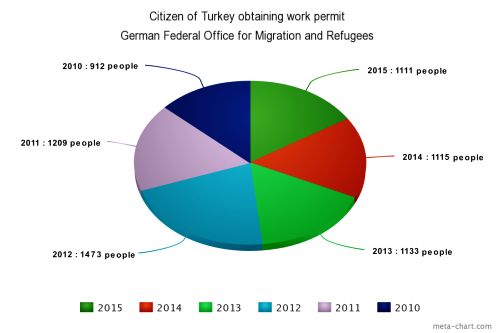
Of the 2013 incoming residents, 1,463 came to Germany with an education permit; 1,307 with a residence permit, and 6,966 through the family reunification program. The 2014 figures showed 1,327 people with an education permit, 1,352 with a work permit and as many as 7,317 through family reunification. In 2015, 997 Turkish citizens started to reside in Germany with an education permit, 12 with a job-seeking visa, 972 with an employment visa, and 8,667 through family reunification.
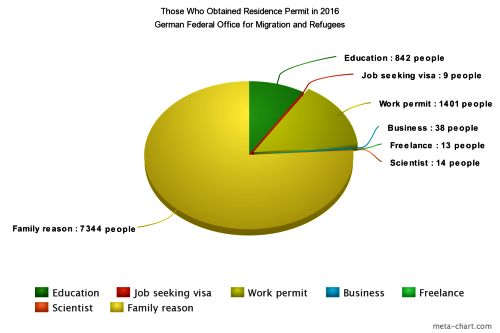
Of the 2013 incoming residents, 1,463 came to Germany with an education permit; 1,307 with a residence permit, and 6,966 through the family reunification program. The 2014 figures showed 1,327 people with an education permit, 1,352 with a work permit and as many as 7,317 through family reunification. In 2015, 997 Turkish citizens started to reside in Germany with an education permit, 12 with a job-seeking visa, 972 with an employment visa, and 8,667 through family reunification.
In 2016, the plan of leaving Turkey became more popular than ever, and the number of citizens who obtained a residence permit was 9,661. 76% of these people came to Germany for family reasons. These reasons can be divided into two categories: marriage, and return of people whose families reside in Germany. Our path crossed with one of the 7,344 people who came to Germany through family reunification in 2016.
X, who is a cameraperson, took part in the shooting of various documentary movies. He also worked freelance occasionally for a TV channel thatwas outside of the mainstream and is now closed. He first came to Germany f in May of 2016. His reason to come was again a documentary shooting, however, he started to have a romantic relationship with a woman from Germany. They had met in Turkey before X came to Germany. This became a factor for him to accept the job offer in Germany. As the shootings dragged on, X managed to prolong his stay by extending his visa till June.
In July, the incident that ensured he became one of the 7,344 people occurred. His girlfriend was affectedby what happened in Turkey more than X. Sheasked him to not return to Turkey and proposed to him OR asked him to marry her.Making the decision without even informing their families, they got married in the third week of July. He has never been back to Turkey since that day. This has caused him to long for Turkey.
He last went to Turkey in June of 2016. He intends to fulfill the responsibilities of staying here in Germany alongside the burden that has been placed on him by this decision. He struggles with challenging issues such as securing a residence permit, moving house, starting a new life, adapting to a new language and finding a job. As he continues to work freelance, he attends a German language course and puts in a serious effort to shift to a more established life.
Permanent guest
The number of people who went from Turkey to Germany for education is 842. This figure includes those studying on the undergraduate or postgraduate level. G. is one of them. Writing his/her dissertation as a student in social sciences, G. decided to go to Germany through the guest student program. But he/she kept the idea of living in Germany permanently in the back of his/her mind.
Coming to Germany in September, G. went through a difficult time due to losses in his/her family. The first reason for him/her to come here was to move away from the process filled with desperation and thus to take a breather. However, since September, there was only one thing on his/her mind: Continuing to live in Germany where he/she came to complete his/her doctorate degree. In addition to difficulties of living in Turkey as an academic, losing his/her hopes for a bright future in Turkey formed the basis to make his/her visit permanent. There is a chance that he/she can find a position in the academy if he/she can transfer his/her doctorate registration to Germany.
At this time, he/she is focusing on his/her dissertation and attempts to stay here. G is also keeping the sports teaching license he/she obtained in Turkey as a plan B.
Seeking a new life the year before turning 50
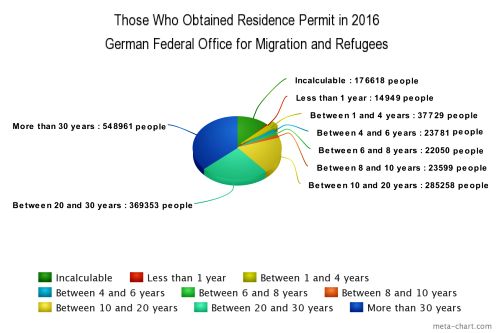
The number of people who come to Germany with the job-seeking visa is the smallest number within these statistics. Ş.Ş. is among the 9 people who were granted this visa. As an employee working in fields of music and art organization in Turkey, Ş.Ş. was working in the organization of large-scale music festivals. However, the downward trend taking place recently in this field has also brought his/her business to a standstill. It was perhaps easier for him/her compared to others to seek a solution in Germany and to attempt this as he/she is one year away from the age of 50.
He/she decided to settle in Germany by with the advantage of having spent his/her childhood in Germany. Even though he/she had certain advantages, such as speaking the language of the country and spending his/her childhood here, he/she decided to initiate the process by affording to leave his/her spouse and kid going to primary school behind.
As Ş.Ş. noted, “Instability of the country and not being able to see a future for his/her children”, , is the primary reason that drove him/her to immigration. He/she has been going through this process by seeking work and starting a business with the little money left in his/her pocket. His/her goal is to continue the profession he/she knows best. However, it is not easy to enter such professional circles, especially in Berlin. S’s spouse, who plans to bring his/her child to Germany with a sudden decision, will continue to stay in Turkey.
Sent by the state, victimized by the state
Tuba İnal Çekiç is an academic. Even though she worked at Humboldt University as a guest academic member in 2016, she is among the victims of the statutory decrees. Coming to Germany with her daughter for educational purposes in June, Tuba met with Alper through a stroke of luck. “Immigration is in fact a never-ending thing,” Alper says. Tuba is of the opinion that it is going to be easier to adapt in Germany thanks to the solidarity culture she learned during the Gezi protests.
Peace is in Berlin
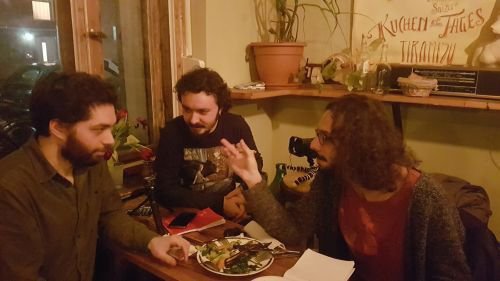
Kadir’s story is a bit different thanthe previous accounts. Born in Ankara, Kadir lived in İstanbul for occupational reasons for a while before he came to Berlin. He realized that the city tired him as he was trying to maintain a life. Upon realizing that he internalized the stress of the city, he started to question his motivations concerning his job. The feeling that the steps he took for a job change with the motivation to change himself and people around him becoming barren drove him to different searches. Kadir was driven to search for a new job due to a desire to change himself as well as his feeling that the people around him were becoming desperate/worn-out. After not receiving compensation for most of his works, he was convinced he needed to leave the country.
It was easier for him to make this decision because he was a computer engineer and because Berlin is currently aiming to be the Silicon Valley of Europe. Kadir is one of the 965 qualified laborers who have work permits in 2015 in Germany.
Theresence of the sectoral circle in Berlin has helped him hold on to the city. Even though he preferred to not follow any developments in Turkey as to not obstruct his adaptation process in Berlin, his arrival coincided with the October 10 massacre in Ankara. Watching from far away his acquaintances being killed in the explosions that came one after another was spiritually the harshest experience he had. Having to watch people he knew being killed in these explosions from far away was one of the harshest spiritual experiences he has had to endure.

A photo taken in Berlin by Kadir from the 600th week of Saturday Mothers/People’s sit in.
Working as a freelance photographer, Kadir, age 30, covered the Saturday Mothers and took photos of them for a long time. Kadir says when he came to Berlin, he felt a bit empty inside due tothis distance from his previous weekly routine. “Those were the most difficult times of being away, Kadir says about those days. He states that he has been deliberately refraining from discussing these matters for the past 6-7 months. But the incidents in Turkey and the question of what he can do for the world still bothers him.
Stressing frequently that he is spending a peaceful life in Berlin, Kadir believes that being in Berlin has given him different responsibilities. He notes that he is more hopeful in the long term with respect to the things he can do during his stay in Berlin to transform what he and his friends experience. He doesn’t know whether he will return some day. (VA-İK/NU/HK)
* The "Unemployed Journalists Chasing News" project is being realized with the financial support of Matra-Human Rights Program of Consulate General of the Kingdom of the Netherlands.
Tomorrow: Immigration of the Suffocated
***
UNEMPLOYED JOURNALİSTS CHASİNG NEWS
1- Even Though They Speak Through Their New “Occupations,” They Are Journalists
2- Journalism is Banned under theState of Emergency
3- Germany: New Generation Diaspora/Kopuntu
4- Germany: Immigration of the Suffocated





